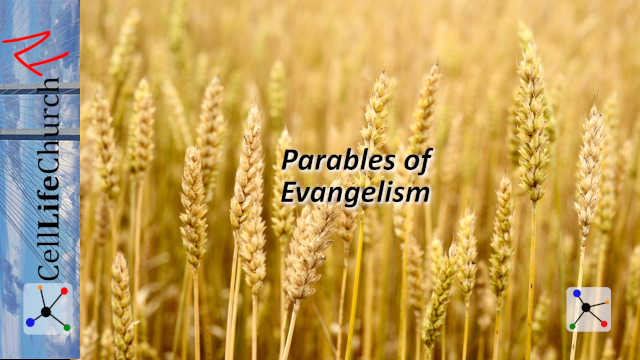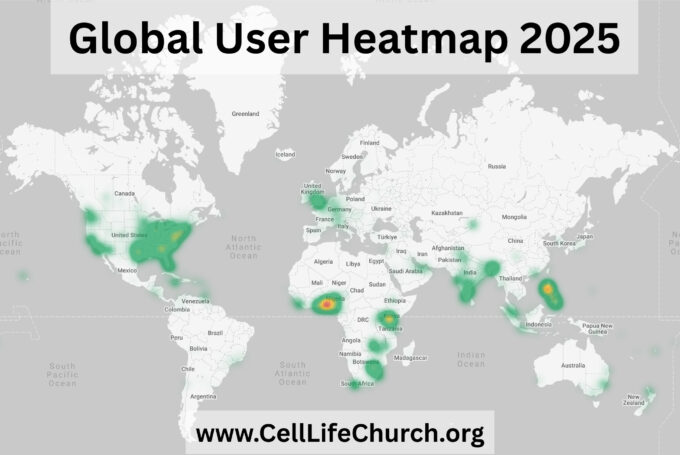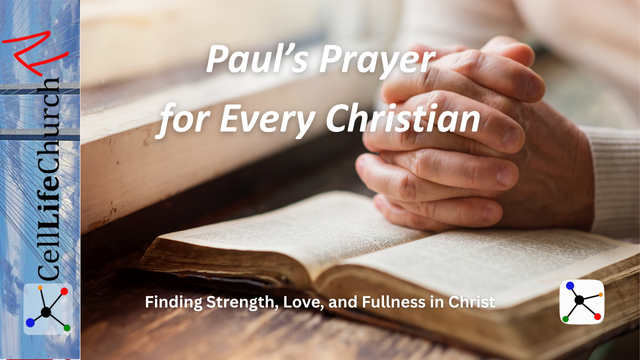Jesus teaches evangelism through parables that reveal the heart of the Great Commission: scattering the seeds of the gospel freely, trusting God with the harvest, and partnering with the Holy Spirit in transforming lives. Discover how the Parable of the Sower and the Parable of the Weeds show us what faithful evangelism truly looks like.
Estimated reading time: 7 minutes
Table of contents
- Downloads and Links
- Introduction
- Scatter the Seed Everywhere – Faithful Evangelism Without Favoritism
- Trust God with the Growth – Patience in the Process
- The Parable of the Weeds
- Partner with the Holy Spirit – Let God Do the Transforming
- Conclusion – Faithfully Sow, Patiently Trust, and Boldly Go
- Related Links
Downloads and Links
Introduction
Evangelism is not just a church program or the work of professional missionaries—it is the heartbeat of the Great Commission. When Jesus commanded His followers to “go and make disciples of all nations” in Matthew 28:19–20, He invited every believer into a lifelong mission of sharing the good news of salvation. That same mission continues through us today.
Before ascending into heaven, Jesus promised, recorded in Acts 1:8, “You will receive power when the Holy Spirit comes on you; and you will be my witnesses in Jerusalem, and in all Judea and Samaria, and to the ends of the earth.”
The Holy Spirit empowers ordinary people to do extraordinary work; sharing God’s love, grace, mercy, and forgiveness wherever we go.
Jesus often taught using parables, simple, relatable stories, that reveal eternal truths. Two of these parables, the Parable of the Sower and the Parable of the Weeds in Matthew 13, teach us how to faithfully live out evangelism and trust God with the results. These two stories form a powerful pair: one focuses on our obedience to sow, and the other teaches us to trust God with the harvest.
Scatter the Seed Everywhere – Faithful Evangelism Without Favoritism
We read the parable of the sower in Matthew 13:1-9.
Matthew 13:1-9
(1) That same day Jesus went out of the house and sat by the lake. (2) Such large crowds gathered around him that he got into a boat and sat in it, while all the people stood on the shore. (3) Then he told them many things in parables, saying: "A farmer went out to sow his seed. (4) As he was scattering the seed, some fell along the path, and the birds came and ate it up. (5) Some fell on rocky places, where it did not have much soil. It sprang up quickly, because the soil was shallow. (6) But when the sun came up, the plants were scorched, and they withered because they had no root. (7) Other seed fell among thorns, which grew up and choked the plants. (8) Still other seed fell on good soil, where it produced a crop—a hundred, sixty or thirty times what was sown. (9) Whoever has ears, let them hear."
In the Parable of the Sower, Jesus describes a farmer who scatters seed broadly. Some seed falls on hard paths, some on rocky soil, some among thorns, and some on fertile ground. While not every seed takes root, the farmer still sows abundantly.
This picture of evangelism challenges us to let go of selective witnessing. Too often, we hesitate to share our faith with certain people, those who seem uninterested, skeptical, or even hostile to the gospel. But Jesus’ example reminds us that the gospel is for everyone. The power of salvation is not in the soil; it is in the seed. God’s Word carries its own power to transform hearts.
Isaiah 55:9-11 says:
Isaiah 55:9-11
(9) "As the heavens are higher than the earth, so are my ways higher than your ways and my thoughts than your thoughts. (10) As the rain and the snow come down from heaven, and do not return to it without watering the earth and making it bud and flourish, so that it yields seed for the sower and bread for the eater, (11) so is my word that goes out from my mouth: It will not return to me empty, but will accomplish what I desire and achieve the purpose for which I sent it.
We are called to share the gospel freely and faithfully, not strategically or cautiously. Our role is obedience; God’s role is the harvest. Every conversation, act of kindness, or testimony shared is a seed that can take root in someone’s heart, sometimes in ways we will never see.
Ask the Holy Spirit to show you where you have been hesitant to scatter the seed. Look for opportunities to speak life and truth into the people around you, without judging their readiness or response. God can bring fruit even from the most unlikely ground.
Trust God with the Growth – Patience in the Process
Notice how the farmer in the parable did not carefully plant his seed just in the places where it would grow best. We read that as he was scattering his seed some fell along the path, some fell on rocky places, some fell among thorns, and some fell on good soil.
Many teachers of the scriptures will tell us to conserve our teaching and time and only use it to sow the seeds of the gospel of Jesus Christ in places where it is likely to be received and planted in hearts that will then produce fruit in people’s lives. These same teachers of the scriptures will tell us to avoid sharing the gospel with those where it will most likely not take root if it is heard at all.
We believe there is something deeper in this parable than that. There is more to what Jesus is sharing and teaching. The farmer in Jesus’ parable is scattering his seed as he goes. We are to spread the seed of the gospel wherever we go and in whatever situation we find ourselves. Woe be to us if we hold back from sharing our experience with Jesus and the truths of his gospel with people we think may not receive it.
People have twisted this parable into the teaching of conservation of our resources instead of the teaching of freely sharing Jesus with everyone and everywhere regardless of the likelihood of their acceptance. We believe and teach that the preaching of Jesus’ gospel and the teaching of scripture is always appropriate. We base this on the next parable we are going to read and tie together with this parable.
The Parable of the Weeds
We read Jesus teaching about trust and patience in Matthew 13:24-30, which says:
Matthew 13:24-30
(24) Jesus told them another parable: "The kingdom of heaven is like a man who sowed good seed in his field. (25) But while everyone was sleeping, his enemy came and sowed weeds among the wheat, and went away. (26) When the wheat sprouted and formed heads, then the weeds also appeared. (27) "The owner's servants came to him and said, 'Sir, didn't you sow good seed in your field? Where then did the weeds come from?' (28) "'An enemy did this,' he replied. "The servants asked him, 'Do you want us to go and pull them up?' (29) "'No,' he answered, 'because while you are pulling the weeds, you may uproot the wheat with them. (30) Let both grow together until the harvest. At that time I will tell the harvesters: First collect the weeds and tie them in bundles to be burned; then gather the wheat and bring it into my barn.'"
In the Parable of the Weeds, a farmer’s enemy plants weeds among the wheat. When the servants ask if they should pull them out, the farmer replies, “No, because while you are pulling the weeds, you may uproot the wheat with them. Let both grow together until the harvest.”
This teaches us to trust God’s timing. In evangelism and discipleship, not everything we see is as it seems. Some people’s faith may grow slowly. Others may struggle with sin or confusion for a long time before they are fully transformed. Our natural impulse is to intervene, to fix, or to control, but God’s wisdom is far greater than ours.
The Apostle Paul teaches us in 1 Corinthians 3:7:
1 Corinthians 3:7
(7) So neither the one who plants nor the one who waters is anything, but only God, who makes things grow.
Evangelism is not about managing outcomes; it is about trusting the process. The Holy Spirit is always at work, even when we cannot see results. What looks like failure may actually be God’s preparation for future fruit. Patience and prayer are key to participating in God’s redemptive work.
Think of someone you have been praying for or sharing Jesus with who has not yet responded. Commit to continue praying for them daily this week. Ask God to protect the seed He has planted and to bring growth in His perfect time.
Partner with the Holy Spirit – Let God Do the Transforming
After someone accepts the gospel and asks Jesus to be their Lord and Savior, our task shifts from sowing to nurturing. But sometimes, believers rush to point out flaws or demand instant spiritual maturity. The Parable of the Weeds reminds us that transformation takes time, and it is ultimately the work of the Holy Spirit, not human effort.
The Holy Spirit convicts hearts, reveals truth, and brings lasting change. We are called to walk beside new believers with patience and grace, modeling the love and mercy of Jesus. Just as farmers tend their fields without digging up growing crops, we must nurture new faith gently and prayerfully.
Evangelism does not end at conversion. It continues through discipleship, encouragement, and prayer. When we partner with the Holy Spirit, we help cultivate lasting faith instead of forcing surface-level change.
Reach out to a newer believer in your life. Encourage them, listen to their story, and remind them that growth takes time. Ask how you can support them in prayer or study the Word together. Be a living example of grace as they grow in Christ.
Conclusion – Faithfully Sow, Patiently Trust, and Boldly Go
The Parables of the Sower and the Weeds together reveal the heart of the Great Commission. Evangelism is about obedience, not results. We are called to scatter the seed of the gospel widely, trust God to nurture it, and rely on the Holy Spirit to bring transformation.
Some seeds will flourish, others may struggle, and some may never sprout, but every act of witness matters in God’s grand plan of redemption. These parables beautifully show how Jesus teaches evangelism through simple stories that reveal God’s heart for every soul.
Jesus tells us, in Matthew 9:37-38, “The harvest is plentiful but the workers are few. Ask the Lord of the harvest, therefore, to send out workers into his harvest field.”
Faithful evangelism means living as a constant reflection of Jesus’ love—sharing His truth without fear and trusting God’s timing in every life we touch. When we scatter seeds of grace, we participate in God’s eternal harvest.
This Week
Be intentional about living out the Great Commission this week:
- Pray each morning for one opportunity to share your faith naturally in conversation.
- Scatter the seeds of the gospel through your words and actions wherever you go.
- Trust God with what you cannot see; He is growing a harvest through your obedience.
- Encourage another believer to join you in praying for the lost and living out evangelism daily.










Leave a comment